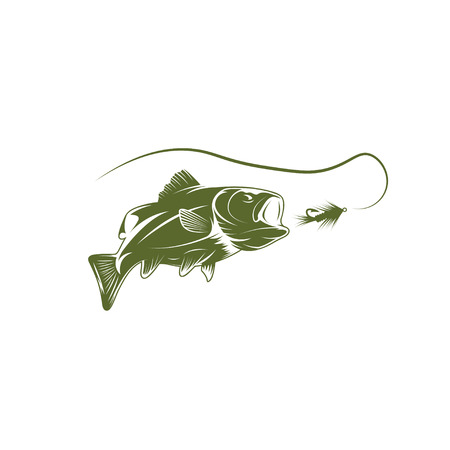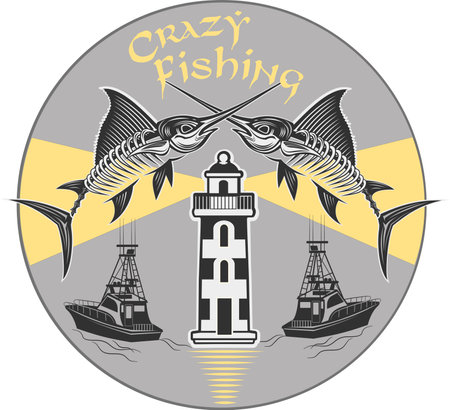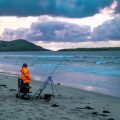Introduction to Cod Fishing in the UK
Cod fishing has long been woven into the fabric of British maritime heritage, echoing across windswept harbours from Cornwall to the far reaches of Scotland. For centuries, sturdy trawlers and weathered hands have brought this iconic fish to British tables, where it stars in everything from humble fish suppers to elegant seaside feasts. The cultural significance of cod extends beyond cuisine; it’s a symbol of industrious coastal communities, their traditions shaped by the ebb and flow of the North Sea and Atlantic. Yet, as with many natural treasures, cod fisheries have faced mounting pressures from overfishing, environmental shifts, and evolving regulations. These challenges have prompted a profound transformation—one that sees anglers, commercial fleets, and conservationists alike navigating new waters to ensure cod stocks endure for future generations. Today, sustainable cod fishing is not just about preserving a species but safeguarding a way of life that has shaped Britain’s coasts for centuries.
2. The Importance of Sustainability
When it comes to cod fishing in the UK, sustainability isn’t just a buzzword—its a vital principle that underpins the health of our marine ecosystems, the wellbeing of coastal communities, and the very future of recreational angling. British waters have long been renowned for their rich fishing heritage, but overfishing and environmental pressures have placed iconic species like cod at risk. Embracing sustainable practices ensures that these waters continue to thrive, offering both present enjoyment and a legacy for generations to come.
Why Sustainable Practices Matter
For local communities dotted along the British coastline—from Cornwall’s rugged coves to the windswept shores of Northumberland—cod fishing is more than tradition; it’s a way of life and a source of livelihood. Unsustainable fishing threatens not only fish stocks but also the economic stability of these communities. By prioritising sustainability, we safeguard jobs, support local businesses such as tackle shops and fishmongers, and help maintain our cultural connection to the sea.
Benefits Across the Board
| Stakeholder | Benefit of Sustainable Cod Fishing |
|---|---|
| Local Anglers | Ensures continued access to healthy fish populations for sport and sustenance. |
| Coastal Communities | Secures income and employment while preserving maritime heritage. |
| Future Generations | Guarantees that cod and other marine species remain abundant for years to come. |
| The Environment | Protects biodiversity and helps restore balance in marine ecosystems. |
A Legacy Worth Preserving
Sustainable cod fishing is about more than quotas or regulations—it’s an ethos rooted in respect for nature and community. By choosing responsible angling methods, adhering to catch limits, and supporting conservation efforts, British anglers play a crucial role in shaping a brighter future for our seas. Ultimately, safeguarding cod stocks today means ensuring that tomorrow’s anglers can experience the same sense of excitement when casting into British waters, surrounded by thriving wildlife and vibrant coastal life.

3. Conservation Efforts and Challenges
In the ever-changing seascape of British waters, conservation initiatives for cod have become a defining feature of modern angling and fisheries management. Across the UK, a tapestry of scientific projects is underway, weaving together data on migration patterns, breeding grounds, and population health. Universities and marine institutes work hand in hand with organisations like Cefas (Centre for Environment, Fisheries and Aquaculture Science) to track cod movements and analyse stock levels—vital information for shaping effective quotas and closed seasons.
Despite these efforts, several persistent threats continue to cast a shadow over cod populations. Chief among them is overfishing, historically driven by both commercial fleets and increased demand at the chippy. While quotas have curbed some excesses, illegal landings and misreporting remain problematic. Habitat degradation is another pressing concern: bottom trawling not only removes fish but also disturbs fragile seabed ecosystems essential for juvenile cod. Meanwhile, climate change is shifting sea temperatures and altering prey availability, making it harder for traditional spawning grounds to support healthy stocks.
Community-led conservation schemes are springing up along the coast—from Cornwall to Northumberland—often involving local anglers, who now see themselves as stewards rather than simply takers. These groups champion catch-and-release practices, support citizen science tagging projects, and advocate for protected marine areas where cod can thrive undisturbed. The path ahead is complex, but by blending grassroots action with rigorous research and pragmatic regulation, there’s hope that UK cod stocks can be safeguarded for future generations of fishers—and Friday night suppers alike.
4. Understanding and Managing Quotas
Quotas sit at the heart of sustainable cod fishing in the UK, serving as a vital tool for balancing marine conservation with the needs of both commercial and recreational fishers. The quota system is designed to prevent overfishing, protect vulnerable stocks, and ensure that cod remains a fixture in our waters for generations to come.
How the Quota System Works in the UK
In the UK, quotas are primarily set through annual negotiations between the UK government and neighbouring countries, often as part of wider international agreements. These Total Allowable Catches (TACs) are informed by scientific advice on stock health from organisations like the International Council for the Exploration of the Sea (ICES). The UK then divides its national quota among different sectors using Fixed Quota Allocations (FQAs), which are distributed to producer organisations, individual vessels, and, more recently, a pool for smaller boats.
Quota Distribution Overview
| Sector | Description | Quota Allocation |
|---|---|---|
| Producer Organisations | Groups representing commercial fishers | Majority share; based on historical catches |
| Non-sector Vessels | Smaller boats not affiliated with POs | Pooled quota; managed by Marine Management Organisation (MMO) |
| Recreational Angling | Individuals fishing for leisure | No direct allocation; subject to catch limits and seasonal closures |
Impact on Commercial and Recreational Fishing
The quota system influences every aspect of cod fishing life along Britain’s coasts. For commercial fishers, quotas determine how much cod can be landed legally each year, affecting business viability and local economies—particularly in traditional fishing towns from Cornwall to Northumberland. Strikingly, exceeding quotas can result in hefty fines or closure of fisheries. For recreational anglers, while there is no formal quota allocation, regulations such as bag limits and minimum landing sizes are enforced to limit pressure on stocks. During certain periods, recreational fishing for cod may even be temporarily suspended if stocks are deemed at risk.
The Balance Between Conservation and Access
Navigating quotas requires collaboration between government bodies, scientists, industry leaders, and local communities. While some fishers feel restricted by quotas, others recognise their necessity for ensuring that future generations can enjoy cod fishing—whether casting off Brighton Pier or heading out from Whitby Harbour. Ultimately, the quota system reflects an ongoing effort to balance responsible access with ecological stewardship in British seas.
5. Responsible Angling Practices
For UK anglers, taking responsibility on the water is essential for ensuring the future of cod stocks. Whether you fish from a Cornish headland or a North Sea pier, your choices matter. Selecting the right gear is the first step—opt for circle hooks and barbless designs, which greatly reduce injury to released fish. Lightweight tackle also allows for a more sensitive touch, minimising unnecessary stress on cod during the fight.
Catch-and-Release Techniques
If you must release a cod, handle it with wet hands to preserve its protective slime coating, and support its body gently. Use pliers or a disgorger to remove hooks swiftly; if the hook is deep, it’s often better to cut the line close rather than risk further harm. Always return cod to the water as quickly as possible and avoid fishing in extreme temperatures when survival rates drop.
Community Action and Stewardship
Responsible angling extends beyond personal conduct. Join local clubs or initiatives like The Angling Trust’s campaigns, which champion sustainable practices and habitat restoration. Participate in citizen science projects by recording your catches through apps or logbooks—these grassroots efforts provide vital data for marine scientists monitoring cod populations.
Respecting Quotas and Local Guidelines
Stay up to date with regional regulations on size limits, bag quotas, and closed seasons. By only keeping what you need for the table and encouraging peers to do likewise, you contribute to preserving this iconic British species for generations to come. Remember: stewardship is at the heart of true angling tradition along our coasts.
6. The Future of Cod Fishing in the UK
As we cast our gaze to the horizon, the future of cod fishing in the UK stands at a crucial crossroads. With policy developments continually evolving—shaped by both domestic priorities and international obligations—there is a growing recognition that sustainable seas require more than just legislative changes. The recent introduction of stricter quotas and adaptive management strategies signals a commitment to rebuilding cod stocks, yet these efforts must be underpinned by robust enforcement and transparent reporting.
Innovative Technologies for Sustainability
Emerging technologies offer fresh hope for balancing tradition with conservation. Electronic catch monitoring, improved vessel tracking systems, and selective fishing gear are gradually becoming part and parcel of the modern British angler’s toolkit. These innovations not only enhance traceability but also reduce bycatch, helping to safeguard juvenile fish and other marine life. As such, technology is poised to become an indispensable ally in our collective quest for sustainability.
The Role of Anglers: Stewards of the Sea
Recreational anglers have a pivotal role to play, too. By adopting catch-and-release practices where appropriate, respecting closed seasons, and participating in citizen science initiatives, everyday fishers can help gather valuable data and foster a culture of stewardship along Britain’s storied coastlines. It’s about cherishing the thrill of the chase while ensuring that future generations can enjoy the same abundance we do today.
A Shared Responsibility
The government, industry leaders, and local communities must continue working hand-in-hand. Transparent quota setting, investment in habitat restoration, and educational outreach are all vital components of this shared responsibility. Only through open dialogue and mutual respect can we reconcile economic livelihoods with ecological balance.
Ultimately, securing the future of cod fishing in the UK will demand patience, adaptability, and a willingness to learn from both past mistakes and present successes. By blending policy innovation with hands-on action at every level—from Westminster corridors to weather-beaten piers—we can ensure that British cod remains not just a culinary staple but a symbol of sustainable maritime heritage for years to come.


